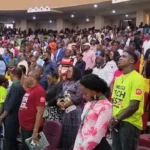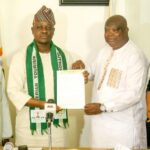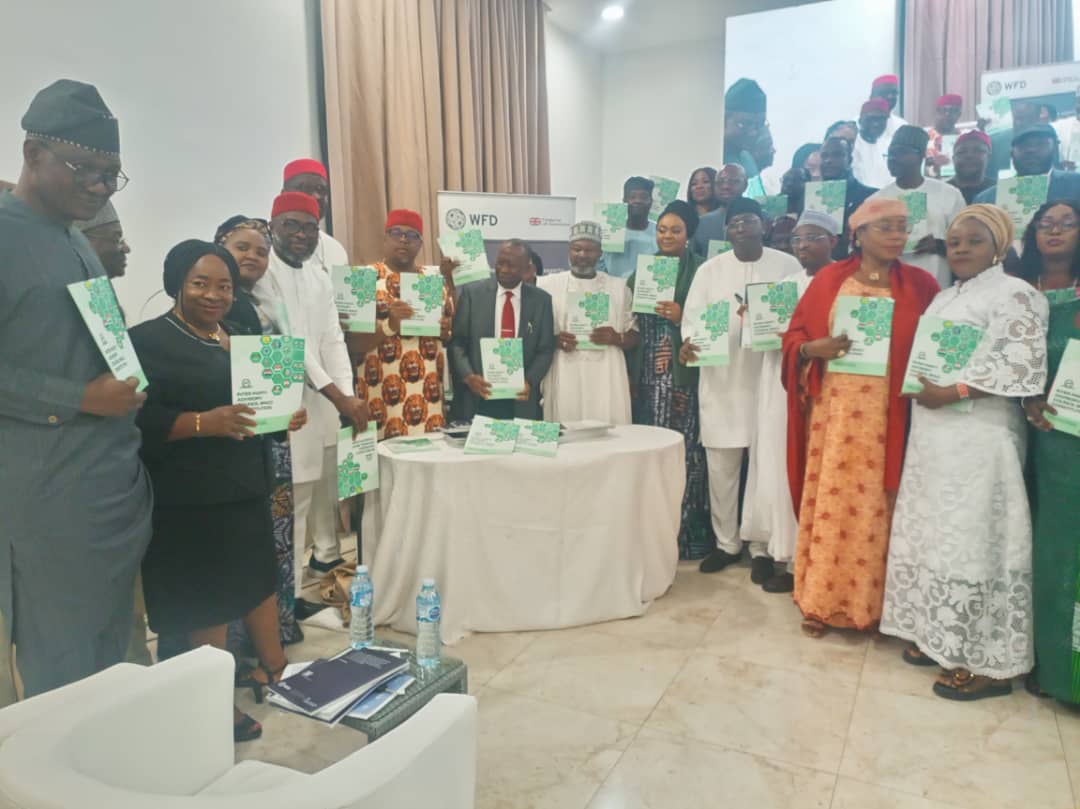By Justina Auta
The Political Parties Performance Index (PPPI) report has revealed lack of inclusivity, legal compliance and public outreach in Nigeria’s 19 registered political parties.
This was disclosed at the launch of the PPPI report and the Inter Party Advisory Council (IPAC) constitution in Abuja.
The PPPI is an evidence-based framework developed by Westminster Foundation for Democracy (WFD) to assess political parties’ performance in the areas of inclusivity, legal compliance, and public outreach.
Adebowale Olorunmola, Country Director of WFD, Nigeria, said that the data revealed gaps between how well parties think they are doing, how their members perceive their performance, and how the public experiences them.
Olorunmola said that parties reported an average score of 82.4 per cent on inclusivity, while party members rated this at just 67.6 per cent, exposing a 15 per cent implementation gap.
“In legal compliance gap, while parties self-reported 86.4 per cent, members gave an average of 72.4 per cent.
“Citizens rated political parties at just 45.9 per cent for public outreach, which is the lowest score across all assessment layers,” he said.
According to him, the launch of the PPPI report and adoption of the revised IPAC constitution will strengthen democracy and commitment by political parties to embrace accountability, inclusion, and institutional reform.
“We believe that strong, transparent and citizen-responsive political parties are the cornerstone of a healthy democracy.
“These tools are not just documents; they are instruments of transformation that can help political parties better serve the Nigerian people,” he said.
He said that the documents would contribute to building a more resilient and inclusive democratic system.
Alhaji Yusuf Dantalle, National Chairman, IPAC, said that the constitution now served as a new ethical standard that all registered political parties must uphold as a platform that produced elected office holders across the country.
“We are duty bound to champion good governance accountability and service delivery.
“We must hold leaders to their promises and keep the welfare of the people above personal interest in line with section 14, sub section two, paragraph B of the 1999 constitution,” Dantalle said.
Prof. Kunle Ajayi, Independent National Electoral Commission (INEC) National Commissioner, said that the problem was with parties not complying with their own constitution.
“So, this framework is to ensure that they drive their own internal constitution to enforce it on them to avoid crisis and losing credibility in the eyes of the public.
“Parties have to reach out to the public. They have to be active, not only during election time, but before, during and after election, they have to be visible,” he said.
Mr Kingsley Chinda, Minority Leader, House of Representatives, noted lack of political discipline, ideology and vision as challenges affecting political parties.
Chinda described the PPPI report as a developmental framework designed to nudge parties toward transparency, accountability and better engagement.
“There is an urgent need for a national conversation on political party reform.
“This conversation must be anchored, not only on the deficiencies we see today, but on the possibilities we can imagine,” he said. (NAN)(www.nannews.ng)
Edited by Kadiri Abdulrahman












